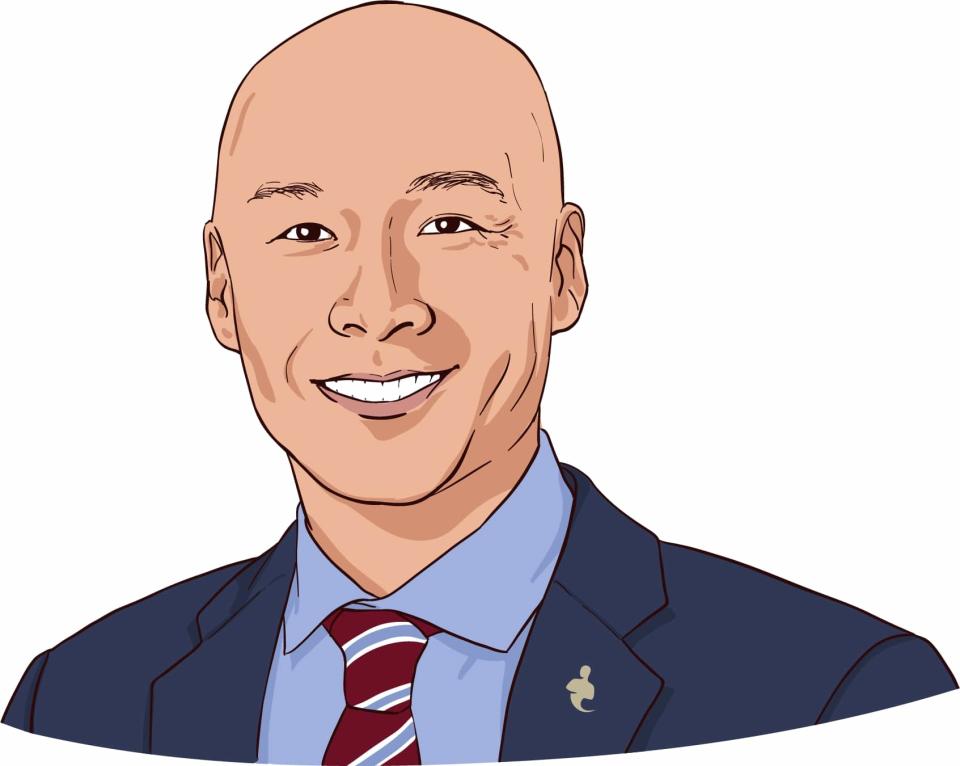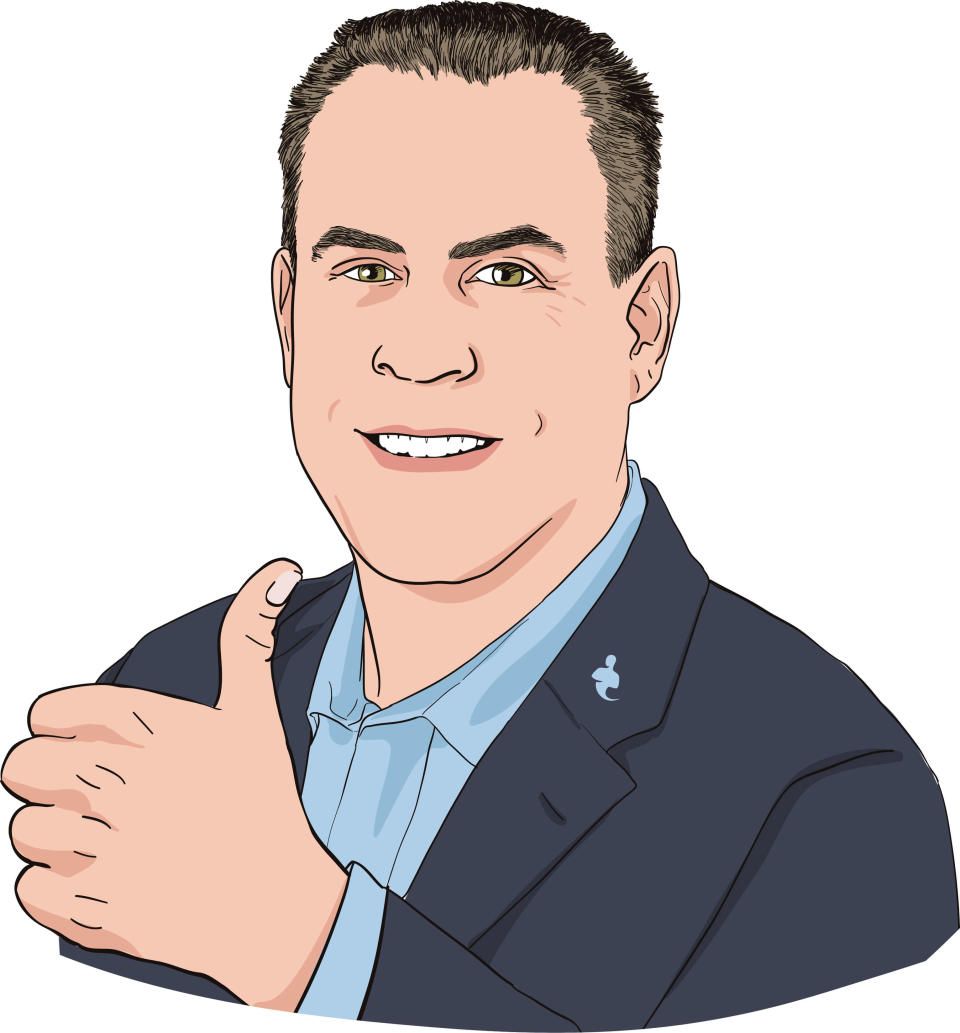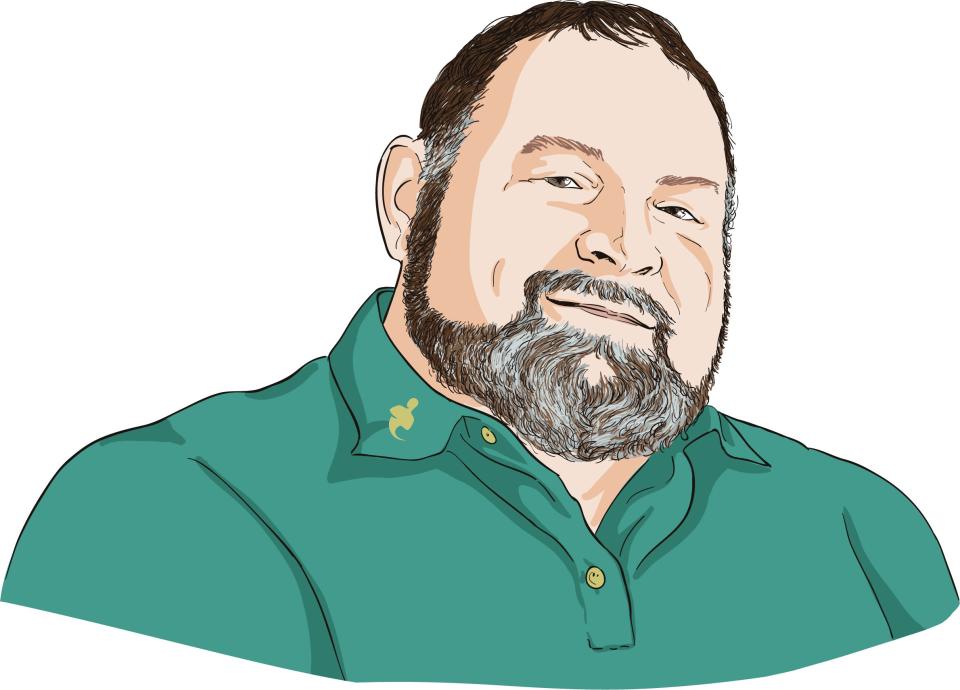10 essential pieces of advice for anyone who wants to leap from employee to entrepreneur
Entrepreneurship isn’t for everyone.
It’s difficult, risky, and stressful; but if you’re successful, you’ll become the master of your destiny. These business founders and "Advisors" in The Oracles share how they made the leap from employee to entrepreneur — and how you can too.
1. Start small.
When I had the idea for Canva, I was a student who didn’t even know what a startup was. I just had a problem that I wanted to solve — to make design simple for everyone — and a lot of determination. We started in a niche market to ensure our approach was possible and needed, and that we solved the problem well.
We spent years growing Fusion Books into Australia’s largest yearbook company before expanding into other countries. We knew our technology could be applied more broadly because nearly everyone needs design.

So we launched Canva in 2013, and now more than 20 million people from 190 countries have used it. —Melanie Perkins, co-founder and CEO of Canva, which is valued at over a billion dollars.
2. Test your idea on friends and family.
I created Hint to get my family drinking healthier beverages. We were the first focus group. Before long, my unsweetened fruit water was quickly disappearing from the refrigerator; so I shared it with friends and colleagues and collected feedback. I knew I had something when they asked me to bottle and sell it.
Even as a national brand, we still get feedback directly from consumers and distribution partners. We observe their behavior because what they tell us doesn’t always match their actions.

We also take calculated risks and don’t rely on consultants or big research studies to make tough decisions. —Kara Goldin, founder and CEO of Hint Inc.; creator of The Kara Network, a digital resource for entrepreneurs; and host of the “Unstoppable” podcast; follow Kara on Twitter and Instagram
3. Prepare for hard work and risk.
If you want to make more money and spend less time at work, don’t quit your job to become an entrepreneur, because you’ll probably invest twice the time and experience more stress. I’m 30 years into my career and still work 100 hours a week. Entrepreneurs also take significant financial risks and average $20,000 less than employees in similar positions. That said, if you think big, get yourself known, and refuse to quit, you will make it — and it will be worth it.

Just remember to 10x your goals and never settle. —Grant Cardone, founder of Cardone Capital, a $1.5 billion real estate empire; connect with Grant on Facebook, Instagram, and YouTube.
4. Find the opportunities hidden behind problems.
When I was a web development manager at a multinational company, a product manager approached me about running a beta test for an upcoming product. I asked a few questions and learned there were no processes for customer testing, and no one to manage it.
I didn’t believe him. How could we be required to run a beta test without a process for getting it done? I searched the entire company for answers, but I didn’t find one. So I broadened the search to my network — and it quickly became obvious that everyone had the same issue. I had uncovered a problem that aligned with my passion: making technology better and more accessible.

That’s when I realized this would become my career. Eighteen years later, it still is. —Luke Freiler, CEO and co-founder of Centercode, a Customer Validation solutions provider that helps hundreds of enterprises and high-growth tech companies bring dynamic and delightful products to market; connect with Luke on LinkedIn
5. Build a side hustle.
Most people don’t know themselves. Dabbling in a side hustle teaches you what you like, what you don’t, and what you’re good at. When you start making extra money, you will eventually be able to quit your job and do what you love — which is essential.

Because if you’re just working for money, you won’t have the passion, commitment, or motivation necessary to succeed while working for yourself. —Marcello Arrambide, founder of Day Trading Academy and co-founder of SpeedUpTrader, a funding company for aspiring day traders; connect with Marcello on Instagram and LinkedIn
6. Buy other businesses.
Imagine if someone were willing to teach you to run a business that is already profitable and sustainable. They would share all the processes, lessons learned, vendors, clients, websites, trade secrets — and even their team. That’s what I’ve found by buying niche businesses. You have a proven blueprint and can focus on improving the company instead of wasting time and resources figuring things out from scratch.

Don’t get me wrong: you still have to be consistent, intentional, diligent, and focused. But you’ll achieve success faster if you leverage what others have already done. —Tom Shieh, CEO of Crimcheck, advisory board member to Defy Ventures, and advisor to Tiny Devotions; connect with Tom on Facebook
7. Talk to others who have done it.
When we were starting our business, I spoke to every accountant, business owner, and entrepreneur I could find. I studied everything they did, from their sales to their processes and back end.
We were determined to become profitable within a year, and you wouldn’t believe the miles I put on my car that year. But we were successful — and we still do the same things. I spend my time considering what my clients need and what motivates them, then implementing my findings in our business. We’re always refining.

I can’t overstate the importance of staying connected to your clients and the pulse of your business. —Bill Gerber, co-founder of AccountingDepartment.com, a virtual accounting service for small businesses; connect with Bill on LinkedIn
8. Identify your value proposition.
“She’s going to think I’m charging too much. Am I worth this? Did I make a mistake leaving my corporate gig?” I was in a vicious loop of self-doubt as I sent my first proposal as an entrepreneur at 11:15 p.m. When there was no response at 5:30 a.m., I was devastated. But a few hours later, she accepted the proposal. I was elated, until I started kicking myself for not charging more.
After over two decades selling others’ products, I was now selling myself — and I needed to tighten my value proposition. It’s essential to know your value and what the market will pay.

You also need confidence, because if you don’t believe in you, then others won’t either. —Michael O’Brien, executive business coach, author of “Shift: Creating Better Tomorrows,” and founder of Peloton Coaching and Consulting and The Pace Line Leadership Academy; read Michael’s story and connect with him on Facebook and LinkedIn
9. Learn to manage your time.
To mitigate the risk, I stayed at my day job while I built my business on the side until I was making nearly triple my salary from my side hustle. I purchased a productivity planner to train myself in time management.
Each morning, I estimated how long I thought it would take to complete my tasks. At the end of the day, I reviewed how long they actually took.

I quickly discovered that I was overestimating how much I could complete, which taught me to set realistic goals and achieve financial freedom faster. —Sarah Chrisp, founder of Wholesale Ted, one of the largest (over 350,000 subscribers) online educational resources teaching entrepreneurs how to create, grow, and scale successful online stores; started her first online store at 16 years old; follow Sarah on YouTube
10. Pivot as you go.
I jumped into entrepreneurship with a side hustle that cycled between growth and failure until it ultimately failed. But a good entrepreneur knows how to be a chameleon; so I focused on the positives and used the skills I learned to create another business.

Eventually, I built a company that did over $150 million in sales per year. Learn from your past and use that knowledge to look to the future. Stay positive and grateful, and live in the moment every day. — Craig Handley, co-founder of ListenTrust and author of “Hired to Quit, Inspired to Stay”; read why Craig trains his employees to quit
Want to get promoted? Wow your boss with these five easy tips
Want to share your insights in a future article? Join The Oracles, a mastermind group of the world’s leading entrepreneurs who share their success strategies to help others grow their businesses and build better lives. Apply here.
For more free business insider advice, follow The Oracles on Facebook, Twitter, and LinkedIn.
This article originally appeared on USA TODAY: 10 successful people on making the leap from employee to entrepreneur

